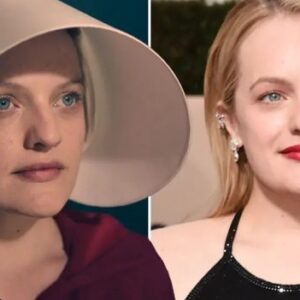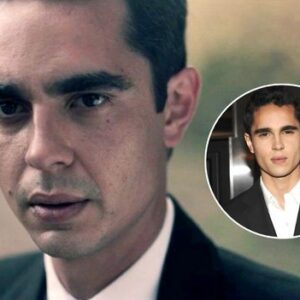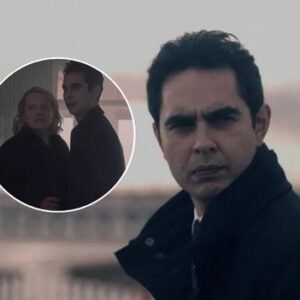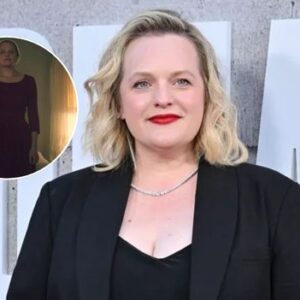Prince Harry is speaking out after losing a legal appeal regarding his security in the U.K., saying the matter has caused prolonged tension with his family.
The Duke of Sussex, 40, spoke with BBC News on May 2, shortly after a judge dismissed his legal challenge concerning his reduced security after stepping back as a working member of the royal family in 2020.
Prince Harry said in the new interview, “I would love reconciliation with my family. There’s no point in continuing to fight anymore.”
“Life is precious. I don’t know how much longer my father has,” he continued, referencing King Charles. The British monarch, 76, was diagnosed with cancer last year and is continuing treatment. “He won’t speak to me because of this security stuff, but it would be nice to reconcile.”
Prince Harry said his security issues “could be resolved” through King Charles.
“There is a lot of control and ability in my father’s hands,” he said. “Ultimately, this whole thing could be resolved through him. Not necessarily by intervening, but by stepping aside, allowing the experts to do what is necessary.”
The palace has consistently denied that the King has the power to have Harry’s security reinstated.
:max_bytes(150000):strip_icc():focal(749x0:751x2):format(webp)/king-charles-prince-harry-0305-1-a492ac4dcda041e4bc44708421006e4c.jpg)
The royal family’s rift first became public in 2020 when Prince Harry and his wife, Meghan Markle, stepped back from their royal roles. For the Duke of Sussex, no issue is a greater sticking point than that of security, multiple well-placed insiders previously told PEOPLE.
Despite a positive meeting between the father and son in February 2024 following the King’s cancer diagnosis news, the monarch stopped taking his son’s calls or responding to his letters.
:max_bytes(150000):strip_icc():focal(749x0:751x2):format(webp)/Prince-Harry-Was-Cheerful-on-Flight-Back-from-UK-After-Visiting-Dad-King-Charles-021224-8ded2485811f4e84a52ee0c1c15eeef1.jpg)
“He gets ‘unavailable right now,’ ” said a friend of Harry’s last year. “His calls go unanswered. He has tried to reach out about the King’s health, but those calls go unanswered too.”
Prince Harry traveled from his California home to London to attend the two-day appeal hearing on April 8 and 9, fighting for the restoration of state-funded security during visits to the U.K.
As he left court on April 9, the Duke of Sussex told PEOPLE he was feeling “exhausted and overwhelmed.”
:max_bytes(150000):strip_icc():focal(776x253:778x255):format(webp)/prince-harry-arriving-court-040925-2-beb93b747ad843fd8aa2150ba54e7d92.jpg)
He said that his “worst fears have been confirmed by the whole legal disclosure in this case — and that’s really sad.”
“This one has always mattered the most,” Harry told PEOPLE.
Judge Sir Geoffrey Vos dismissed the appeal on May 2, calling RAVEC [the government’s Royal and VIP Executive Committee]’s decision on downgrading Prince Harry’s security “understandable and perhaps predictable.”
“Even if there had been a risk analysis from the Risk Management Board, it would very likely have only confirmed the threat, vulnerability and impact levels which the Duke of Sussex had faced when earlier risk analyses were undertaken,” the judge added. “But it would have had nothing to say on the critical features of the changed situation, namely the need for protective security on future uncertain visits and the government’s appetite for risk.”
In an official statement following the judges’ decision, Harry said he would be “writing to the Home Secretary to ask her to urgently examine the matter and review the RAVEC process.”
“This legal action has been a last resort, but one that has uncovered shocking truths, starting with the fact that the Royal Household are key decision-makers on RAVEC and my sole representation for matters regarding my safety.”
In the BBC interview, Prince Harry said that he “can’t see a world” where he would bring Meghan and their two children, Prince Archie and Princess Lilibet, back to the U.K. given the security concerns.
“The things that they’re going to miss is…well, everything,” he said. “You know, I love my country. I always have done — despite what some people in that country have done. I miss the U.K. — I miss parts of the U.K., of course I do. I think that it’s really quite sad that I won’t be able to show, you know, my children my homeland.”
Elsewhere in the interview, he said, “A decision that was made, most likely — in fact, I know — to keep us under the roof. But then once they realized that wasn’t going to work, once they realized that myself, my wife, my kids are happier outside of the institution, then please just look at the facts. Look at the risk, look at the threat, look at the impact that if anything was to happen to me, my wife or my father’s grandchildren, if anything was to happen to them, look where the responsibility lies.”





